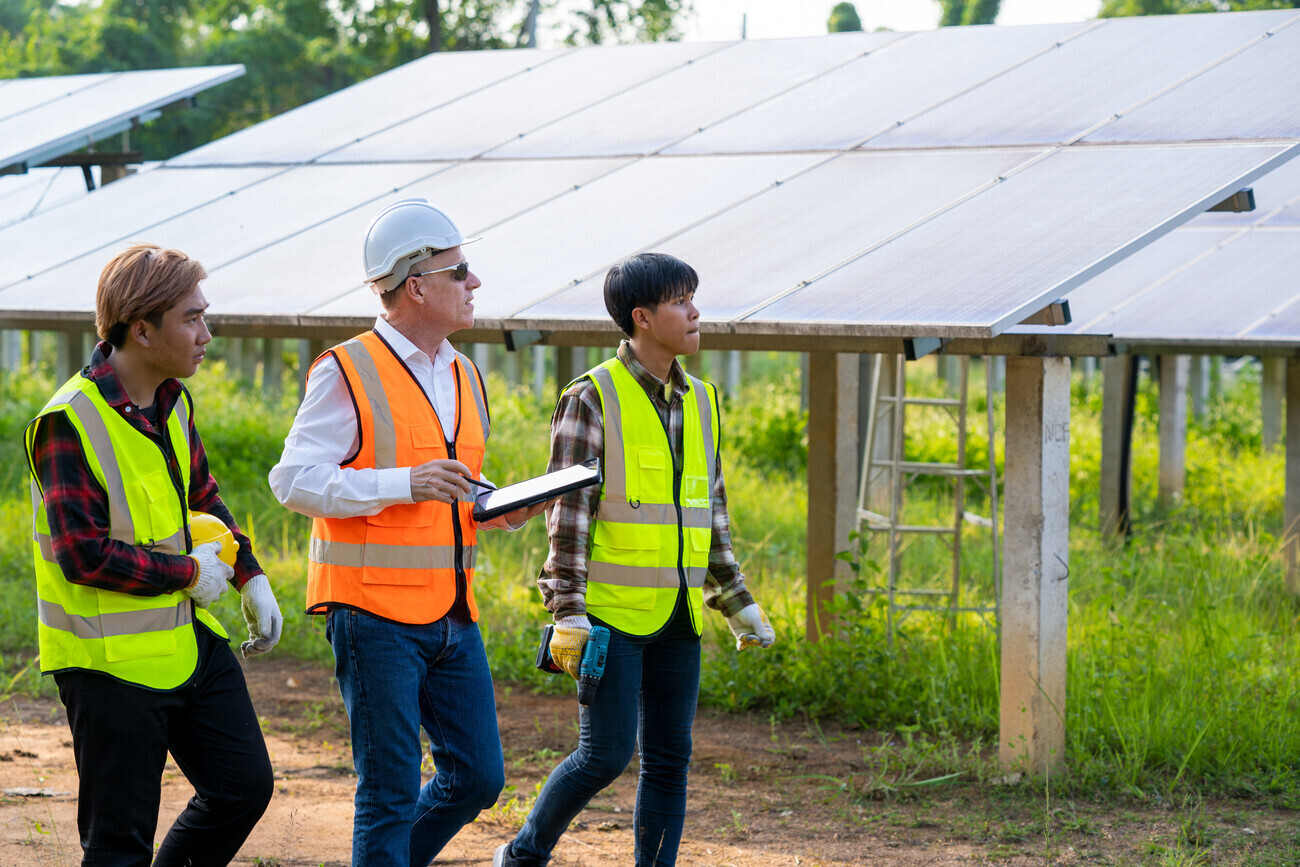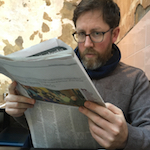Lessons in sustainability from an APM Award winner

Deep in the lush green countryside of Buckinghamshire’s Colne Valley, APM’s 2023 Sustainability Award winner Jacobs is showing what can happen when large infrastructure projects take nature into consideration.
Jacobs has introduced a raft of innovative ideas on HS2’s Colne Valley Landscape & Habitat Creation project, focused on decarbonisation and increasing the resilience of the natural habitat. The result: a net gain in biodiversity within the Colne Valley. In total, the project will create over 300 acres of new woodland, wetlands and grassland habitats. This, the team says, has the twin benefit of enhancing the natural environment and sequestering carbon. They have also figured out how to reuse three million tonnes of chalk from the tunnel to create the site, reducing the amount of construction traffic required, and reducing HS2’s carbon footprint.
Environmental considerations are no longer an optional add-on to construction projects, but these demands must still work in tandem with traditional project parameters.
“In the past, sustainability was often considered as a ‘nice to have’ or ‘too expensive’,” says Will Masters, part of Jacobs’ sustainability team. “The aim must be to run projects that deliver sustainable outcomes without compromise to budget and deadlines. An important aspect of this is to work closely with the client to understand their needs through materiality assessment, and ensure the budget considers whole-life cost and value.”
Aligned with the United Nations (UN) Sustainable Development Goals (SDGs), PlanBeyond® is Jacobs’ approach to integrating sustainability throughout its operations and client solutions – planning beyond today for a more sustainable future for everyone. Jacobs focuses on six core UN SDGs that are material to its business, where the company can have the most influence and impact, while remaining committed to contribute toward all 17 of the UN SDGs. Jacobs has invested in a portfolio focused on creating positive social and economic impacts, while protecting the environment and improving resilience.
For another example of these principles in action, look at Low Crosby, a village community in Carlisle, Cumbria, that experienced repeated flooding, including from Storm Desmond in 2015. Jacobs supported the Environment Agency through collaborative working to reconnect 185ha of floodplain, significantly reducing flood risk to 95 homes. Furthermore, the natural environment has been substantially enhanced, yielding a combined £8 million in natural capital benefits, and £15.5 million in overall economic benefit. The permanent change in land use also improves the capacity of the land to absorb carbon, making the scheme is carbon negative over the 100-year assessment period.
According to Masters, the success of these developments is down to the continual learning offered to Jacobs’ project professionals.
“We work with our clients to understand how we can deliver better solutions and use continuous feedback and learning-from-experience processes to drive progress,” he says. “As part of our culture of learning, the business sponsors our people to undertake training that builds skills, enhancing their career path and enabling projects that go beyond clients’ requirements.”
Masters adds that entering the APM Project Management Awards has been a great way for the Jacobs project team to keep testing and honing their approach, as they endeavour to keep pace with the shifting sustainability demands of the project world. When asked what advice he’d give other project professionals feeling the pressure to remain current, Masters emphasises one word: culture.
“Without a doubt, the most important driver to embedding sustainability is through a culture based on leadership and a clear strategy,” he says. “This needs to be backed up by processes that have sustainability considerations baked in, and contracting models that include incentives to deliver smarter, more sustainable solutions.”
Indeed, culture needs to extend beyond the company. Buy-in should be achieved not just across the team itself, but among anyone with a stake in the project’s fortunes. This starts with clearly understanding and communicating the client’s priorities so everyone is on the same page. Jacobs also offers climate solutions training throughout its value chain, to provide “foundational insight into the challenges and how they can mitigate and adapt”.
“A clear strategy must be driven from those at the top of the organisation, who should ensure buy-in through open engagement,” says Masters. “Our Sustainability Champions are integral members of our project teams. They ensure we maintain focused through stakeholder engagement, sharing of best practice, and challenging the accepted.”
As sustainability is not an add-on, it needs to be approached in the same way people would naturally consider quality and safety. Masters calls it a “golden thread that runs through everything we do” and urges fellow project professionals tackling sustainability to “think holistically”.
“Sustainability is wide-reaching, and we should encourage solutions that include all aspects, from decarbonisation and resilience, to biodiversity and the circular economy,” he says. “Every aspect of a project manager’s role should include an element of sustainability, from ensuring the scope considers environmental impact, to including climate resilience in risk and scheduling.”
Overwhelmed by the task? You needn’t be. Masters leaves us with a simple reminder that should resonate with all project professionals:
“Remember you can make a big impact in the future by doing something small in the present.”


0 comments
Log in to post a comment, or create an account if you don't have one already.